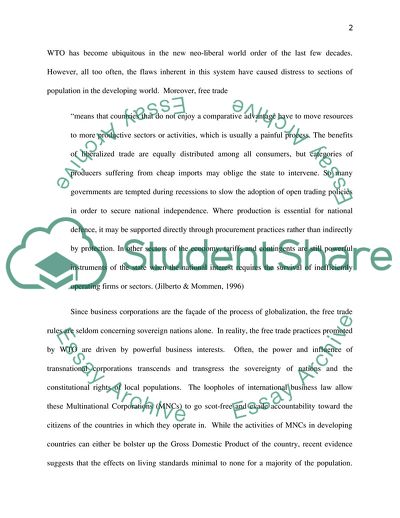Cite this document
(Developing Countries Should Be Exempted From WTO Rules Essay, n.d.)
Developing Countries Should Be Exempted From WTO Rules Essay. https://studentshare.org/macro-microeconomics/1733154-developing-countries-should-be-exempted-from-wto-rules-discuss
Developing Countries Should Be Exempted From WTO Rules Essay. https://studentshare.org/macro-microeconomics/1733154-developing-countries-should-be-exempted-from-wto-rules-discuss
(Developing Countries Should Be Exempted From WTO Rules Essay)
Developing Countries Should Be Exempted From WTO Rules Essay. https://studentshare.org/macro-microeconomics/1733154-developing-countries-should-be-exempted-from-wto-rules-discuss.
Developing Countries Should Be Exempted From WTO Rules Essay. https://studentshare.org/macro-microeconomics/1733154-developing-countries-should-be-exempted-from-wto-rules-discuss.
“Developing Countries Should Be Exempted From WTO Rules Essay”. https://studentshare.org/macro-microeconomics/1733154-developing-countries-should-be-exempted-from-wto-rules-discuss.


